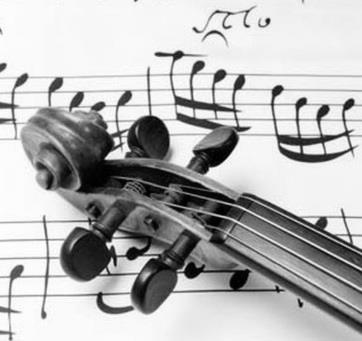
4 minute read
Group 1 Language
IB ENGLISH A LITERATURE
Advertisement
Prerequisites
Extra-Curricular Opportunities
Grade B or 6 at IGCSE or GCSE English Literature and English Language
An English Enrichment group will encourage all students consider reading English at university; attendance is required for Oxbridge candidates. There are periodic theatre trips, visits and lectures.
Possible Career Pathways
This qualification is highly relevant for any career that requires communication or expression: the Law, Medicine, Teaching, Journalism, Business and many more.
DIFFERENCE BETWEEN GCSE and IB DP Higher Level/Standard Level: IB English includes oral assessments and the study of translated texts.
ORGANISATION OF WORK: Students will study 9 works at SL and 13 at HL.
Higher Level Topic Covered
Part 1 Guided literary analysis. The paper consist of two unseen passages from two different literary forms, each accompanied by a question. Students write an analysis of each of the passages. Part 2 Comparative essay. The paper consists of four general questions. In response to one question, students write a comparative essay based on two works studied in the course.
Internal Assessment
Individual Oral. Students offer a prepared response for 10 minutes on two texts, followed by 5 minutes of teacher questioning. The presentation must respond to a Global Issue of choice. One text must be in translation. Oral examination & external moderation 20%
Coursework Essay
Higher Level Essay. Students submit an essay on one literary text studied during the course. 1200 – 1500 words in length Externally marked 20%
Standard Level Topic Covered
Part 1 Guided literary analysis. The paper consists of two unseen passages from two different literary forms, each accompanied by a question. Students choose one passage and write an analysis of it. Part 2 Comparative essay. The paper consists of four general questions. In response to one question, students write a comparative essay based on two works studied in the course.
Internal Assessment
Individual oral. Students offer a prepared response for 10 minutes on two texts, followed by 5 minutes of questioning from the teacher. The Oral examination & 30%
Assessment Method
Examination (2 h 15 m)
Examination (1 h 45 m)
Assessment Method
Examination (1 h 15 m)
Examination (1 h 45 m)
% of grade
35%
25%
% of grade 35%
35%
presentation must respond to a Global Issue of choice. One of the texts must be studied in translation.
Part 4 Options. Three texts SL. Pupils present to the class on one of the works studied for 10-15 minutes.
Part 5 Guided Literary analysis. Pupils write on one of two passages in response to two questions. external moderation
Individual oral presentation 15%
Paper 1 20%

IB GERMAN A LANGUAGE and LITERATURE HL
Prerequisites The course is only available to native speakers of German; formal native speaker German lesson in a middle school are a strong advantage.
Extra-Curricular Opportunities
Possible Career Pathways
The German department offers a wide range of opportunities through the German Society.
Degrees in German, languages, comparatives studies, law, politics and more are well served by this course. The analytical skills through literature appreciation and an understanding how language creates meaning are valuable skills in many different professional fields.
DIFFERENCE BETWEEN GCSE and IB DP Higher Level/Standard Level: This course is only offered at HL and does not correspond to a GCSE in German.
ORGANISATION OF WORK: Students learn to research and write substantial essays, give presentations and how to engage in group discussions; analysis of prose, drama and poetry; students develop an appreciation of how language is used to create meaning and how different types of texts reach different audiences; students also ready literary and non-literary texts in translation.
Higher Level Topic Covered
Students learn to identify literary and non-literary texts by their particular features and how authors use language to create meaning and reach an audience. Texts are chose from a variety of countries and continents, genres and times, to allow for the students to make contextual links and identify Global Issues which overarch the texts and their meaning. Literary and non-literary texts are read in comparison and specific skills trained at the same time, such as research skills, analysis, presentation skills and communication skills. Authors may include Friedrich Schiller, Theodor Fontane, Friedrich Duerrenmatt, Alfred Andersch, Khaled Hosseini, Graham Greene and Erich Fried, but also, Axel Hacke, Yuval Noah Harari, Greta Thunberg, authors of comics/cartoons, a range of journalistic texts as well as advertising. Students research a particular topic for their Higher level essay, which we support through our FOSIL framework. The individual oral benefits from free choice by the students, which allows them to decide which literary and non-literary texts they wish to be examined on. Throughout the course, the students develop a portfolio of their notes and ideas from which to draw on for their assessments.
Assessment Method
Paper 1 Guided textual analysis 2 hrs 15 min
% of grade
35%
Paper 2 Comparative essay 1 hr 45 min
Individual oral 15 min 25%
20%
Higher level essay 20%








